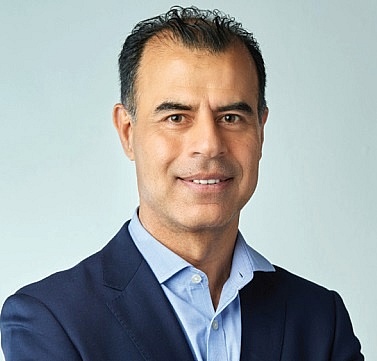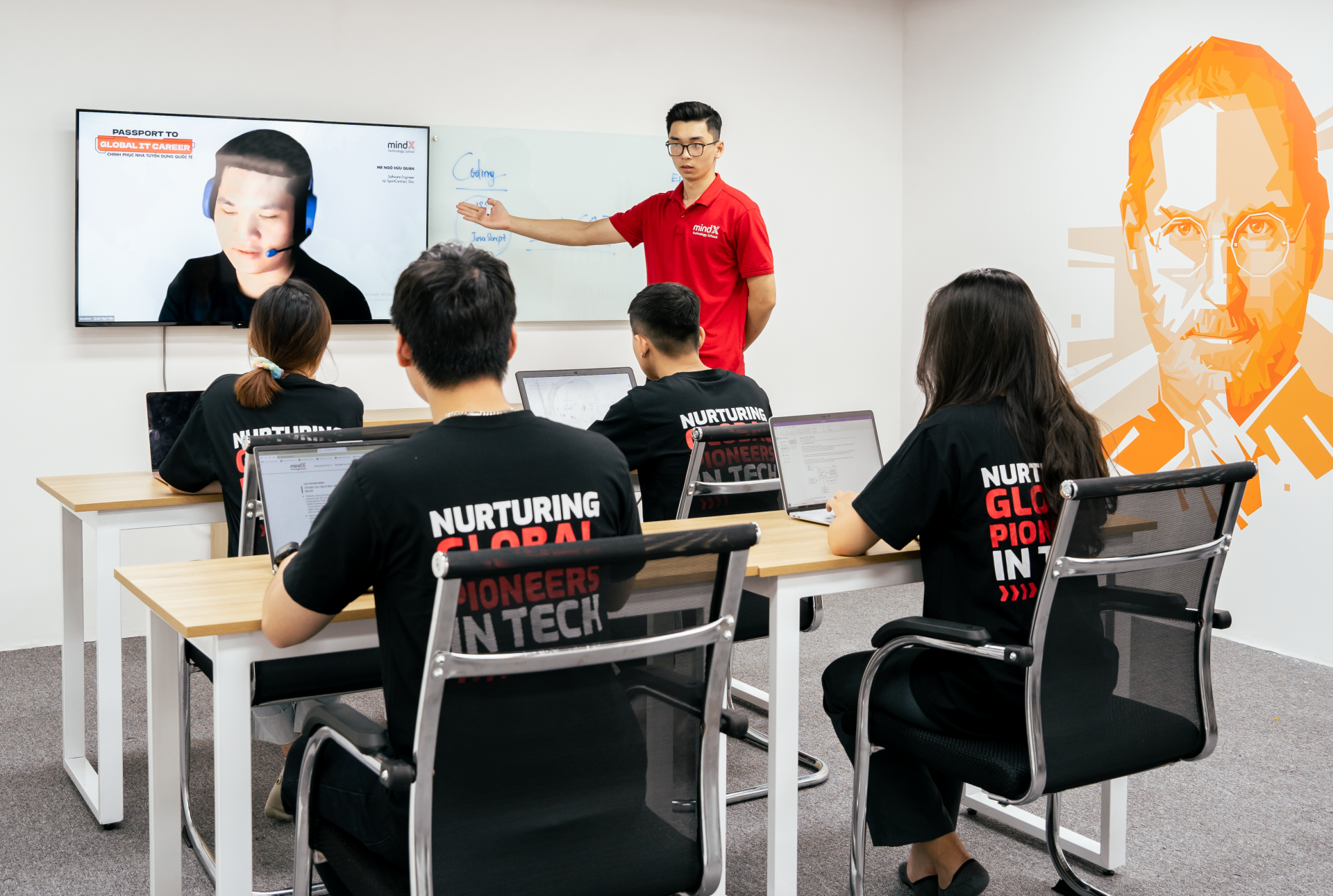Understanding the philosophy of edtech
What is the current state of venture capital (VC) and private equity (PE) investment in the education sector in Vietnam, in your viewpoint?
 |
| Sandeep Aneja, founder and managing partner of Singaporean education-focused fund management firm Kaizenvest |
Despite challenging macro conditions, we remain optimistic about the long-term potential. We recognise the country’s growing tech talent pool and the country’s robust entrepreneurial culture, which are key drivers for growth and innovation. We believe that the rapid pace of digitalisation across industries and increasing interest from global tech giants is creating significant opportunities for the education sector, particularly in STEAM (science, technology, engineering, arts, and mathematics) education for all age groups.
A few years back, most of the VC/PE investments in Vietnam were focused on K-12 education systems/schools, especially international curriculum schools and bilingual schools. While those investments are still interesting, we are seeing a growth in investments in other skills-oriented segments that bring differentiated skills to learners – from language to coding to other technical skills. Hence, we anticipate continued interest in Vietnam’s education sector by VC/PE funds.
Additionally, many segments are now ripe for consolidation and we believe that within 12 months we will start seeing mergers and acquisitions that consolidate investments in the education sector in the country that were made between 2016 and 2020.
What are the main factors that venture capitalists consider when investing in the education sector in Vietnam?
At a macro level, most investors seek to invest in education because families spend a huge percentage of their disposable income on education. Unlike many consumption buckets, education is sticky and a student can be with an institution from several months to a year, or of course over many years.
Strong unit economics are inherent in this sector, and this attracts investors. With the arrival of technology in education, often called edtech, it is now possible to actively reach out to students far away from the education provider through live lectures and other technology-led means. Therefore, education investments are quite attractive. Our general rule of thumb for investing in any company are factors such as founders-market fit, attractiveness of the market, product traction, and differentiation.
Specifically, for education, we look at key success factors such as student outcomes, scores, and financial and operating metrics. Some examples include improving tangible student outcomes, identifying signs of high retention and renewal rates for business-to-consumer offerings. For those, in addition to learning outcomes, we seek clear signs of customer retention and profitability.
How do Vietnamese edtech startups compare to those in other countries in terms of innovation and market potential?
There are two types of innovations, broadly speaking, in edtech. One of them is market business model innovation (such as offering blended learning to expand customer base) or core technology innovation (such as a new AI-led algorithm in learning).
Vietnamese companies are doing very well in terms of business model innovation using technology. In terms of core technology-led innovation, Vietnamese edtech startups are still in the early stages of development but are rapidly gaining ground as compared to the edtech startups in countries such as China, the United States, and India.
In terms of market opportunities, we strongly believe the Vietnamese market has significant potential due to the country’s large and young population, rising disposable income, increasing education expenditure, and the highly ambitious and career-driven culture. We see Vietnam as a very interesting jurisdiction for edtech providers from Singapore, India, and from the US.
We are also starting to see such companies establishing presence in Vietnam, either through acquisitions or by opening new offices. In five years, the Vietnamese edtech landscape will be vastly different, with many more regional and global players.
What are the risks associated with investing in the education sector in Vietnam, and how do venture capitalists mitigate these risks?
Talent and regulatory risks are some of the significant considerations we have seen in the Vietnamese education space.
Firstly, an observation we had is that there are plenty of white space opportunities in the market, such as digital skills for K12 as well as large untapped markets for STEM and English language in tier 2-3 cities. However, scaling becomes difficult when there is a lack of available talent for growing companies to pull from. Given our exposure in the Southeast and South Asia markets, we can support companies by identifying available cross-border talents/resources and form key partnerships to help mitigate this particular risk.
Next, the education sector is highly regulated in Vietnam and new regulations or changes in existing ones can significantly impact the industry. To mitigate the risk, invest in segments that are least likely to see significant regulatory changes. Therefore, we are cautious, for example, about greenfield real estate projects in education.
What trends are shaping the education sector in Vietnam?
One of the biggest trends we are seeing that is shaping the education sector in Vietnam is the need for a skilled workforce.
The country continues to attract global tech giants in tech manufacturing in Vietnam such as Samsung. In 2022, Samsung had 28 factories producing electronics in Vietnam across 11 provinces, which covers 80 per cent of their manufactured goods. This development has continued to draw top talents from around the world into the country, which has coincidentally resulted in an increase in competitiveness for highly skilled local talent across multiple facets.
The trickle-down effect of attractive salaries and career opportunities has led to an increase in demand of quality STEM education for children as well as adults, demanding upskilling/reskilling to meet the growing employer demands. This trend has also inadvertently impacted the increase in demand for international education and soft skills training.
Another trend that we have observed is that parents are gradually accepting online learning as part of the core teaching pedagogy. Traditionally, Vietnamese parents are strong proponents of physical learning experience. Hence, we believe this new pedagogy shift will create a promising future for edtech to thrive and grow in the country.
On the same note, some trends that we have seen existed in developed countries but are still nascent in Vietnam are local players offering personalised learning paths with individual progress tracking to help students achieve better outcomes at a large scale. At the same time, education financing for students or schools is also lagging in Vietnam compared to other emerging markets such as Indonesia and the Philippines.
In these uncertain times, VC/PE funds tend to experience a downturn trajectory. What advice would you give to startups looking for investment in the current climate?
Our advice to startups in Vietnam is to be deeply and solidly focused on identifying and solving a problem that they believe they have a unique understanding of. Keeping this as a starting point, companies will be well served to develop a business model that aims for profitability as soon as possible to demonstrate that the market exists.
I am pretty sure that Vietnamese entrepreneurs will be good at achieving strong product-market fit through rapid experimentation, quick short failures, and focused customer deployments and beta tests/feedback cycles.
The hard part is finding the right investment partner to work with. Since investment is a truly a partnership, I encourage Vietnamese founders to talk to potential investors to get an understanding of the Vietnamese market and to assess fit with the investor’s philosophies as well. Ideally, a good investor will bring significant credibility for the company as well.
I would also encourage the founders to be cost conscious, as the days of free flow of capital are gone for now. Core business metrics are important yet again and valuations are more reasonable compared to a few quarters back. Therefore, instead of raising massive amounts of capital, raising smart capital can be more powerful in these difficult times.
Lastly, I would suggest patience, loads of it, and allocating more time for fundraising than what you may imagine. Fundraising is an exercise for not only accessing capital, but also finding a partner who will help you realise your dreams as well.
 | Vietnamese edtech MindX secures $15 million in its series B Vietnamese edtech startup MindX has raised $15 million in a series B funding round to continue its mission of nurturing and empowering Vietnamese innovators to address global challenges through technology. |
 | Significant funding pumped into educational startups Despite forecasts that the global economic situation may negatively impact the startup market, the edtech sector in Vietnam is still flourishing due to increased investment in education, affordable internet costs, and advancements in industry technologies. |
What the stars mean:
★ Poor ★ ★ Promising ★★★ Good ★★★★ Very good ★★★★★ Exceptional
 Tag:
Tag:
Themes: Digital Transformation
- Ericsson and Viettel to accelerate autonomous network development
- PM sets five key tasks to accelerate sci-tech development
- Ho Chi Minh City launches plan for innovation and digital transformation
- Dassault Systèmes and Nvidia to build platform powering virtual twins
- Sci-tech sector sees January revenue growth of 23 per cent
Related Contents
Latest News
More News
- Citi economists project robust Vietnam economic growth in 2026 (February 14, 2026 | 18:00)
- Sustaining high growth must be balanced in stable manner (February 14, 2026 | 09:00)
- From 5G to 6G: how AI is shaping Vietnam’s path to digital leadership (February 13, 2026 | 10:59)
- Cooperation must align with Vietnam’s long-term ambitions (February 13, 2026 | 09:00)
- Need-to-know aspects ahead of AI law (February 13, 2026 | 08:00)
- Legalities to early operations for Vietnam’s IFC (February 11, 2026 | 12:17)
- Foreign-language trademarks gain traction in Vietnam (February 06, 2026 | 09:26)
- Offshore structuring and the Singapore holding route (February 02, 2026 | 10:39)
- Vietnam enters new development era: Russian scholar (January 25, 2026 | 10:08)
- 14th National Party Congress marks new era, expands Vietnam’s global role: Australian scholar (January 25, 2026 | 09:54)



















 Mobile Version
Mobile Version